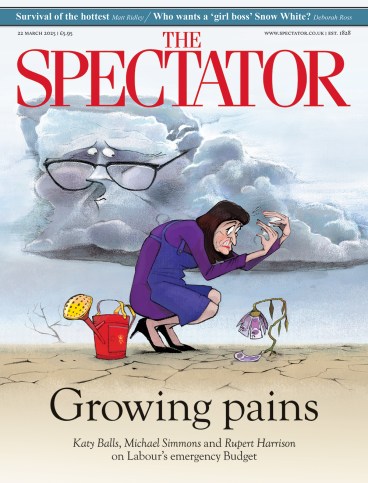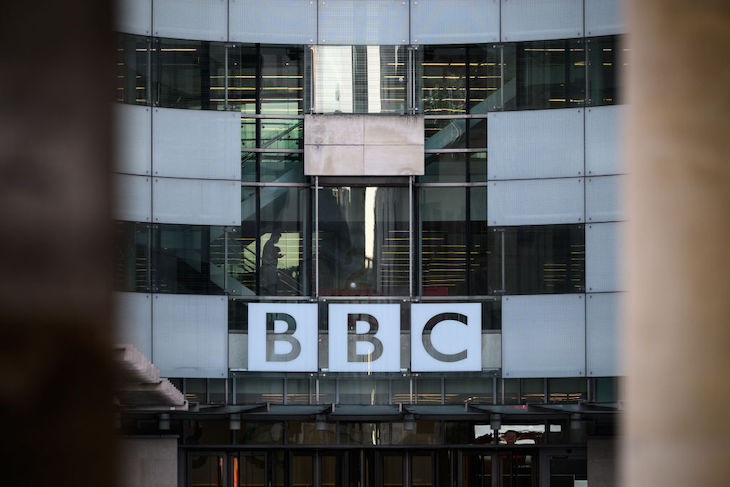
Kemi Badenoch secured the Conservative leadership on the basis that she would confront her party and the country with uncomfortable truths. This week, in a speech to launch the Tories’ policy renewal programme, she effectively told Theresa May and Boris Johnson that they were naifs for committing to unachievable climate targets. The decarbonisation of our economy, she said, was a ruinously expensive folly. By stating baldly and unapologetically that it will be impossible for Britain to get to net zero carbon emissions by 2050 without huge economic pain she has broken a consensus and breached a taboo.
It is difficult for opposition parties to attract attention for policy announcements so far out from a general election, but Badenoch’s clarity is welcome and necessary. Those who genuinely care about conservation rather than virtue-signalling should applaud her approach and urge a debate about costs, trade-offs and alternatives.
By ending the exploration of new sources of hydrocarbons in Britain we do not reduce global emissions
As Badenoch pointed out, our parliament has subjected the drive to reach net zero to only peremptory scrutiny. Legislation was passed with barely any attention given to the costs. When the Climate Change Act came before the Commons in 2008 – originally committing Britain to an 80 per cent reduction in emissions by 2050 – just five MPs, all of them Conservative, voted against it. When a statutory instrument was used in 2019 to change the commitment to achieving net zero emissions by 2050 there was not even a vote.
MPs who have supported decarbonisation at every stage may have believed that public opinion was with them, because when asked in vague terms whether they support net zero, people like to say yes. But a closer analysis of public opinion often reveals that net zero is taken as shorthand for reducing waste, pollution and environmental degradation rather than purely meeting carbon emission targets. When presented directly with the policies required to get anywhere near net zero by 2050, such as a ban on gas boilers or being forced to eat less meat, the public tends to take a very different view.
The direct costs of net zero for the taxpayer are one concern. An even more profound worry is the impact the monomaniacal pursuit of decarbonisation has already had on economic growth. By ending the exploration of new sources of hydrocarbons in Britain we do not reduce global emissions overall, we merely replace jobs in Aberdeen with jobs in Abu Dhabi, Azerbaijan, Siberia and Saudi Arabia. By maintaining the current pricing and subsidy structure for energy in the UK, our costs are four times those faced by US firms. That is why Britain is losing its primary steel industry and is well on its way to losing its chemicals industry. The next target in the sights of the Climate Change Committee is livestock farming, which it wants to undermine. This will be of no benefit to the planet, and will only result in us importing food which used to be produced here, harming the economy and impoverishing farmers.
Badenoch is right to question the pace and path to net zero by 2050, but she is not rejecting the need to take climate change seriously. She argued persuasively that the government’s current approach is economically misguided and geopolitically naive, but she was clear that investment in technological innovation to move away from reliance on hydrocarbons is important. She was also eloquent in her affirmation that the Conservative party is the natural party of the environment – as action over the past 14 years to restore nature, improve the health of rivers and protect marine wildlife has shown.
If any party at the moment is moving away from positive environmental action it is Labour. The clearest example of this is the direct financial attack on farmers. On top of the inheritance tax change Rachel Reeves has introduced, the Treasury has also stopped the environmental subsidies the Tories brought in that help farmers to invest in nature. The government’s parsimony will not just hit farmers’ incomes, it will also reverse any action farmers are taking to combat carbon emissions.
Badenoch has not abandoned the fight against climate change, a phenomenon in which she reaffirms her belief. What she has done is to set the Conservatives apart from an increasingly dogmatic net zero policy on the part of the current government. What she advocates is pragmatism rather than idealism, and an understanding of the complexities of global carbon emissions in place of a blinkered obsession with UK emissions in isolation. In her candour is a courage that should be supported.







Comments